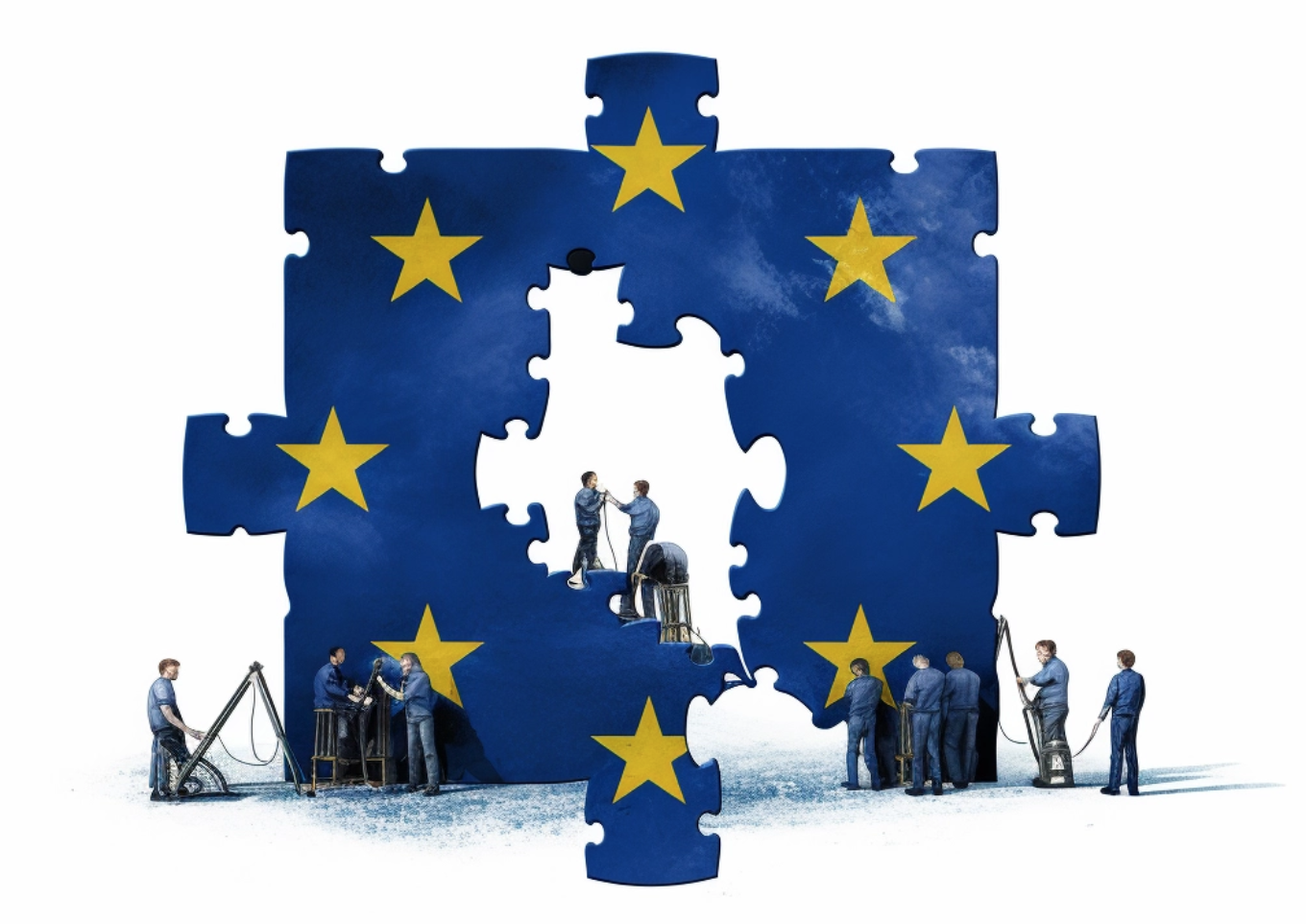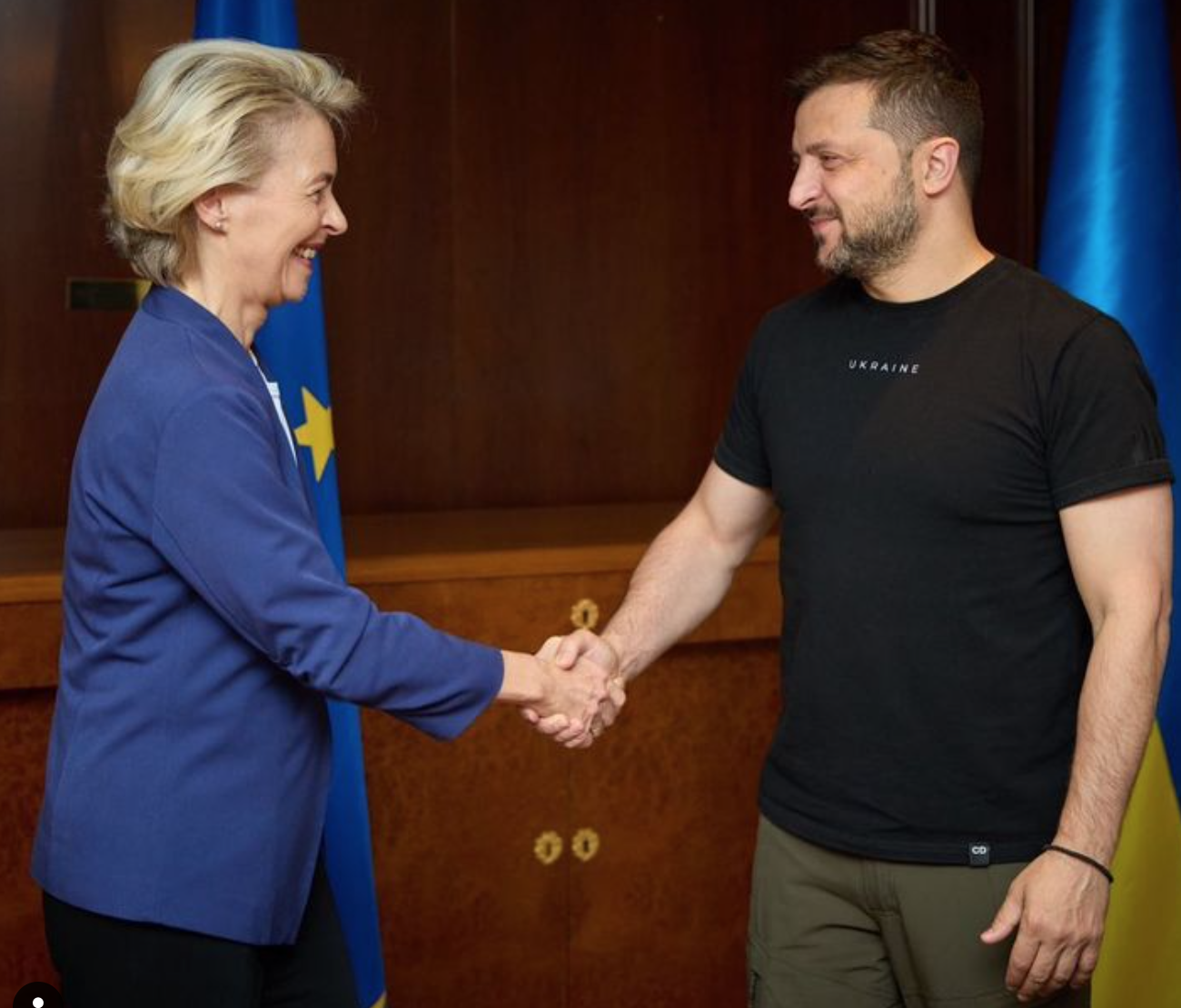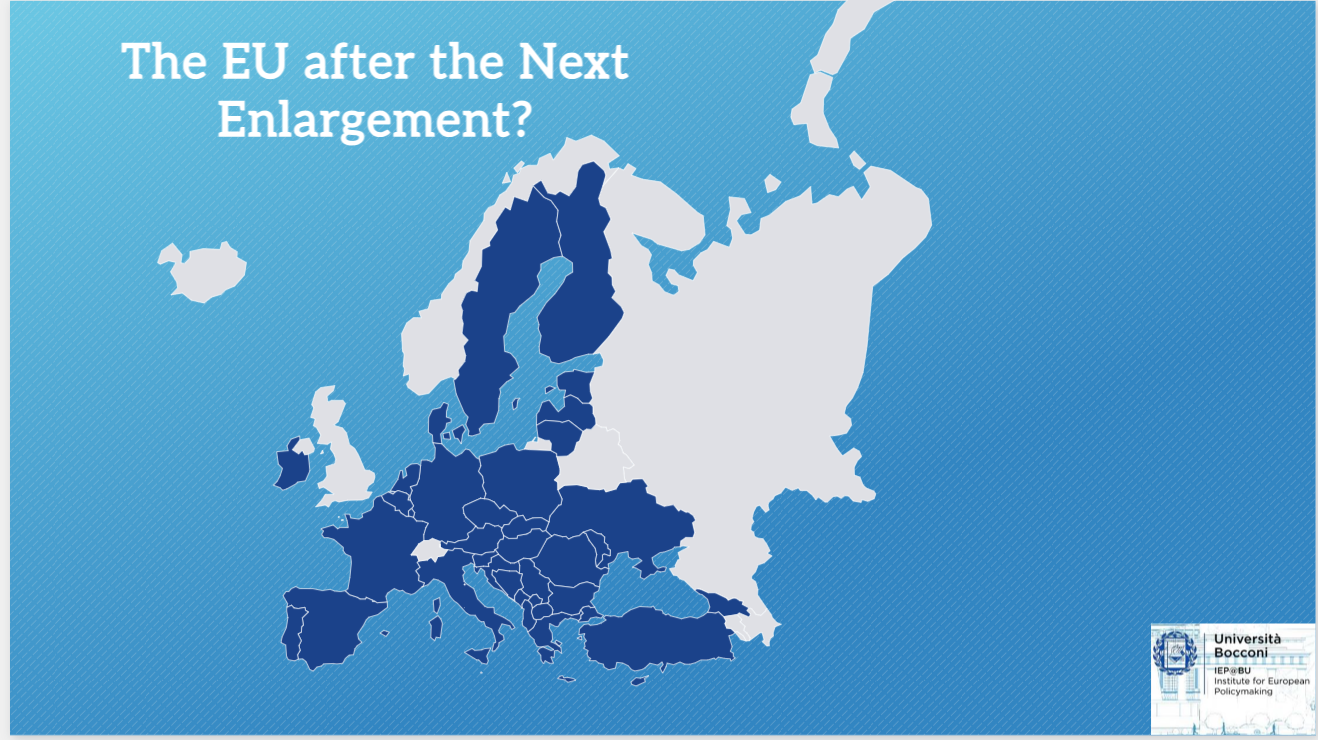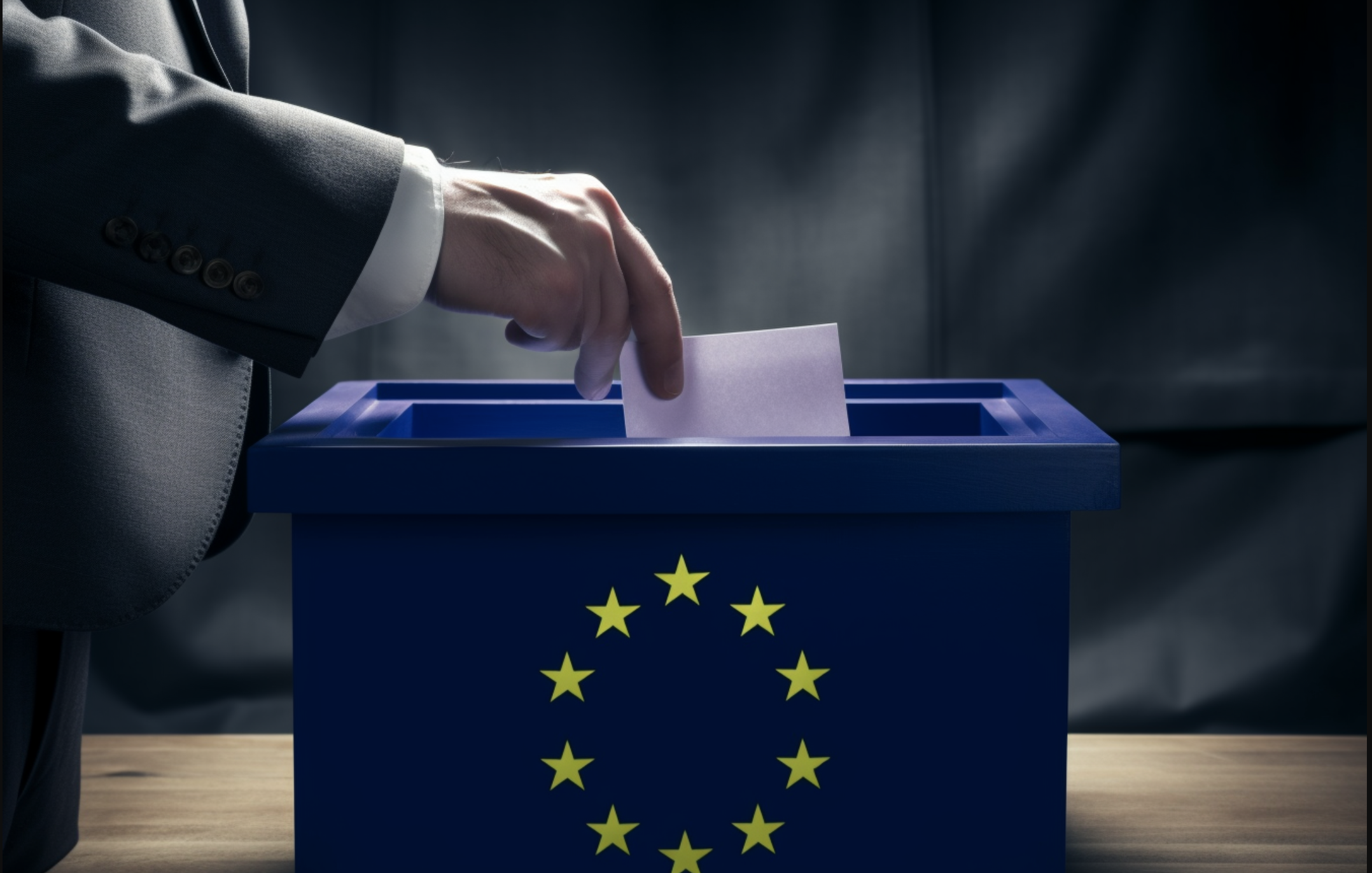Europeans Deserve Better
The way the EU Commission and governments envisage launching future enlargements without strengthening the EU in parallel could have negative consequences for all Europeans, in the EU and in candidate countries.

The author is writing in her personal capacity without engaging any institution or government.
Sylvie Goulard was one of the speakers at the IEP@BU-ECFR event The Enlargement and the Future of the EU, on December 6, where she debated with Marta Dassù. The conversation was moderated by Carlo Altomonte. You can read Marta Dassù's commentary at this link.
Can the EU deliver on its pledges about future enlargements? In my opinion, the whole process can only be a success if deep changes are made by the EU side. As usual, the EU is more keen to look at the efforts candidates should make, than to commit itself to do its part.
In its 2023 communication on EU enlargement policy adopted on November 8, the European Commission has provided “a detailed assessment of the state of play and progresses made by Albania, Bosnia and Herzegovina, Kosovo, Montenegro, North Macedonia, Serbia, Türkiye, and for the first time also Ukraine, the Republic of Moldova and Georgia on their respective paths towards accession to the European Union”.
In light of the results achieved by Ukraine and Moldova, and of the ongoing reform efforts, the Commission has “recommended that the Council opens accession negotiations with both countries”.
If the European Council follows the opinion given by the Commission, the EU would embark on a journey aiming at including 35 member states (or even 36 members, Turkey).
For several reasons, this perspective seems to me beyond our reach.
Wishful Thinking
The EU Commission and national governments are rightly seeking solutions to keep some partner countries protected from Russian aggression or interference. By doing so, we don’t only show solidarity, we safeguard our security.
However, the issue is so serious that we should avoid any wishful thinking. For the first time in European history, decision-makers envisage negotiating accession with countries that are currently under attack or threatened in their integrity (Ukraine, Moldova, Georgia). The ambition to oppose Vladimir Putin a united Europe, based on shared values, requires that we avoid diluting or fragmenting it. When I hear officials using words such as “geopolitics”, two doubts come to my mind.
Firstly, such a shift in the nature of the EU, which has always relied on rules and “soft power”, more than defense and assertiveness, should not be underestimated. Though war is back in Europe, and strong declarations were made at the national level, such as the “Zeitenwende” of German Chancellor Olaf Scholz, I do not see any official joined initiatives aiming at boosting European integration, before enlargement happens.
Governments are not aligned, not even France and Germany, though they have a role to play. What is at stake is war and peace. History, as well as their size, give them a special responsibility, which of course does not exclude anyone else.
Secondly, our global credibility depends not only on our means and instruments but also on our moral commitment, and our readiness to play a collective game, at the European level, with all transfers of sovereignty and sacrifices it could imply.
Unfortunately, recent divisions on Israel and the war in Gaza are showing that we are far from having a common geopolitical awareness.
I would rather say that, in Europe, we are collectively experiencing “une crise de l’esprit”, as the French poet Paul Valéry wrote after the First World War. Great civilizations and empires disappeared in the past, due to their lack of lucidity and action to prevent division and decline.
The “European spirit”, the sense of belonging, should be seriously strengthened. It is necessary if we want to resist Russian propaganda and one day, defend together our territory, our values, and our life.
The EU is not dedicating enough resources and time to foster civil unity, be it to train young people in languages and intercultural exchanges, to complete the single market, to adopt transnational lists for the elections, etc.
The moral dimension of military action is, to me, still underestimated. The strong support we have been receiving from the US since World War 2 kept our societies away from a true perception of the challenges at stake. Military power is much more than spending 2 % of GDP, even if.
Worldwide, nationalism is on the rise. We cannot pretend that loose coordination (of 27? or 36 states?) diplomacies and armies could be enough to become an effective global geopolitical player. To fight fierce national armies of potential enemies, we should care about which form of collective European patriotism we rely upon.
Furthermore, I wonder if the accession process can be quick and substantial enough to give the candidates solid support.
In the Donbass region, Ukrainian soldiers are dying for their country and more broadly, for freedom and other “European values”. In the Western part of Europe, such a tragedy is not perceived in the same way. Life goes on. Everywhere critics against the EU, its red tape, or its “bureaucracy” are still expressed. Some governments are still trying to escape their European responsibilities, be it on the rule of law, be it on the necessary discipline of public finances, not to mention a fair repartition of migrants.
Some parties, like Geert Wilders’ Party for Freedom in the Netherlands, win elections while promising to leave the EU, others don’t hesitate to use nationalistic arguments while getting a lot of money from cohesion funds, common agricultural policy, or Next Generation EU funds.
In a nutshell, do we care enough about the EU to offer it as a solution for an uncertain future?
Many civil servants and politicians argue that enlargement is urgent and indispensable but they also add, just after this first statement, that Europeans in the West should not be worried: it will take time.
Do they play with time, as none of the decision-makers of today will be there in 5 to 10 years? Après moi le deluge… Or does this contradiction cast a shadow on the whole process?
If it takes too long, people under shelling may not be reassured. And if we make them believe that it is possible to be very rapid, the risk exists to destroy their already fragile economies that would not be prepared to resist the pressure of competition. It could also encourage migration towards the west of their best-trained workforces. The 2004-2007 enlargements were a great success in wealth terms but their human consequences were underestimated, as demographers showed.
Some ideas of “step-by-step accession” that are floating around are, in my opinion, dangerous. What makes accession valuable is full membership: to have members of the European parliament contributing to the legislative process, real judges participating in the Court of Justice, and ministers who sit at the table in the Council.
All the rest, consultations, and coordination are not enough to anchor stability. As we rightly did for Brexit, we should stick to the idea that a country is in (with all rights and duties) or out.
EU treaties allow transition periods and flexible modalities, but the core of membership cannot be cherry-picked.

If the result were the dilution of the European Union, we would not have spread stability in our neighbourhood but imported instability inside the EU
Two parallel tracks are needed
I do not believe that, in the current state of the EU, and without launching two parallel, simultaneous tracks – accession negotiations and an in-depth reform of the EU - we can pretend to take “geopolitical” decisions safeguarding peace and prosperity.
Consciously or unconsciously, the EU Commission and member states’ governments are more or less silent about the efforts the EU side should make before being capable of welcoming new members.
There is a large elephant in the European Council’s room.
In its November 8th communications on enlargement, the Commission does not even mention the 4th Copenhagen criterion “The Union's capacity to absorb new members, while maintaining the momentum of European integration”.
Members of the European Council do not always mention either the comprehensive set of criteria. Philippe de Schoutheete, the late Belgian diplomat who introduced this clause in 1993, used to explain that the cohesion of the EU needed to be preserved while increasing its diversity.
Many arguments are déjà vu… In 2004, our leaders already pretended to take a “geopolitical” decision by offering Turkey a European perspective.
The EU’s accession was supposed to have a stabilizing effect, to build a bridge with the Muslim world, etc. We all know the result of this two-decade-long process. According to the EU Commission itself, “accession negotiations with Türkiye are at a standstill since 2018”; Turkey “remains a key partner and a candidate country and highlights its accession as a strategic goal. Nevertheless, Türkiye has continued to move away from the EU, mainly on account of continuing backsliding in the areas of fundamental rights and rule of law, including the independence of the judiciary, and the lack of reforms in some sectoral issues”.
The experience so far with some countries in the Western Balkans is not very encouraging either, as negotiations have been dragging on for years, with little progress.
During the debate around Turkey – and even before, for the previous enlargement waves – the argument was already made that the perspective of becoming a larger Union will put pressure on governments and “oblige” them to make the necessary reforms.
Some were introduced, it’s true, after several attempts (Amsterdam treaty in 1997, Nice treaty in 2000, Constitutional treaty in 2003) but some failed (including the symbolic dimension of the Constitution ending in the Lisbon Treaty). We should not take the reforms for granted.

Democracy and Diplomacy
Governments are very cautious in not taking any position on the future enlargement that could be seen as undermining their support to Ukraine and countries currently threatened by Russia. From a diplomatic point of view, it is understandable. However, in the EU diplomacy cannot be put before democracy.
Pledges are only credible if the whole process of enlarging the EU is legitimate and if European citizens are “on board”.
The more our leaders wait to speak about the consequences of their great design, to explain how they want to proceed, the more they take the risk of a backlash. Until now, this question remains an issue for a small bubble of EU civil servants, national diplomats, and experts.
On the eve of the 2024 European elections, we should know how political parties position themselves if they support the whole package or differentiate between countries, and which concessions they are ready to make at the EU level, to make it happen.
When the UK was a member of the EU, British governments used to be in favour of enlargement in order to broaden the market while impeding the emergence of a “political union”.
On November 23, the European Parliament adopted a report on the future of the EU, recommending the launch of a Convention to reform the treaties, in line with the proposals of the Conference on the future of the EU. But at this stage, at least, governments who are about to launch negotiations and the Commission did not produce any comprehensive blueprint.
They are apparently ready to separate the accession negotiations with the candidates from any commitment among themselves to reform the EU. The latter may happen, or not. If the result were the dilution of the European Union, we would not have spread stability in our neighbourhood but imported instability inside the EU. The first one to be pleased would be Vladimir Putin.
If we truly believe that the EU is, as our institutions show and Joschka Fischer used to say, a “Union of citizens” (with a directly elected Parliament, and directly applying EU law, controlled by a supranational Court) and not only a “Union of states”, we need to make sure that a majority of European people support the enlargement project and engage. The promoters of the euro always used the expression “community of destiny”.
In the case of EU negotiations with Turkey, governments were wrong to take the support for granted. Public opinions, in some member states such as Austria, France, and the Netherlands reacted very negatively to this perspective which contributed, among other factors, to the negative results of referendums in 2005.
In several countries, accession treaties will or may, according to the national constitutions, require referenda. If European citizens continue to be ignored, I would not bet that the result can be positive.
If such a negative decision intervenes years after governments promised their support, with European people rejecting other European people, it would be a disaster. This risk should not be ignored.
If I may say so, I would recommend “to begin by the end”, i.e. to carefully take into consideration since the beginning and all along the accession negotiations and the reform process, the necessity to get the support of a majority.

In several countries, accession treaties will or may require referenda. If European citizens continue to be ignored, the result cannot be taken for granted
Values and Efficiency
The best way to show respect to the citizens of candidate countries, as well as to current EU citizens, is to make sure that we do not promise what we cannot deliver. Being demanding does not mean that one is hostile to the countries concerned.
A higher number of member states and increased heterogeneity inside the EU will require mechanisms to enforce commitments, above all on democracy and the rule of law, as well as a budgetary and institutional quantum leap.
This time, bringing prosperity could be less easy than some pretend, as wealth in candidate countries is far below the living standard of the poorest country of the whole EU (Bulgaria).
Governments should admit that enlargement and any “geopolitical vision” will require huge investments in our neighbourhood, in defense, at a time when energy transition needs to be financed in parallel.
All policies, beginning with common agricultural policy and cohesion funds, the two most important ones in financial terms, will need to be reviewed and maybe recalibrated, not least because Ukraine is a great agri-power.
As we have already reached the limits of our budgetary procedures with member states who negotiate their contributions without any transparency, and with own resources underdeveloped, we should therefore not imagine stretching the current budgetary framework with 36 countries around the table. It is both a matter of efficiency and democratic accountability.
Beyond the single market and the economic/competitiveness challenge, the “geopolitical” objective also requires a serious reset of what we have been doing for decades in terms of diplomacy and defense.
Since the Maastricht Treaty in 1992 – more than 30 years now – the EU is supposed to develop a common foreign and security policy. At best, it has a coordinated one, Hungarian Prime Minister Viktor Orbán (as other leaders using the national veto) permitting. Defense cooperation is improving, be it in EU structures, be it under the umbrella of NATO, an alliance new EU members joined.
Nevertheless, we cannot pretend that we already are where the EU should be if it pretends to be a “geopolitical” actor. Americans have been asking for years that we share the burden of our security.
In my opinion, the reason why we did not manage to build this common foreign and defense policy is that we have been looking at the question through structures, equipment, and arms, without tackling together the most important question: which are the “values” we consider worth fighting for, not only in speeches and op-eds but for real?. To put it bluntly: are we ready to die “for Europe”, if needed? And if yes, for which “Europe”?
In a Union that is permanently enlarging itself, with very few policies conceived to foster human links or increase intercultural experiences, the sense of belonging is being lost. Where are the ultimate limits of the EU?
Twenty years ago, in debates on Turkish accession, people wondered why the EU should have a common border with Iraq. In town hall meetings, people asked legitimate questions. I don’t believe that they got any real answer. Sometimes answers change or are unclear.
It is worth remembering that Jean Claude Juncker, when he was president of the EU Commission, promised not to enlarge the EU further, during his presidency while continuing negotiations with Western Balkans. Also, Juncker said: “We believe that Ukraine is a European nation and that its place is in Europe.
With Georgia in, the EU would be reaching the Caucasus. And if Georgia will be in, why should Armenia stay out? Why are our authorities supporting Azerbaijan instead of helping Armenians? Are energy supplies more important than our “values” and events in Nagorno Karabakh?
Other questions were asked on alternatives to enlargement and existing pan-European bodies. Our governments make it as if there was no alternative, as if the Council of Europe which has a parliamentary assembly, a convention on human rights, a Court taking binding decisions, and an investment bank, could not be mobilized. French President Emmanuel Macron invented the European Political Community, which is a forum. It is quite dangerous to pretend that there is no viable geopolitical approach but accession.
Following this line of argument, what would we propose to the countries on the Southern shore of the Mediterranean Sea? Georgia and Turkey can be in, but they must stay out?
I fear they will consider that there are some hidden criteria behind our reasoning, which taking into account the fact that millions of European citizens have origins and relatives in Maghreb (Morocco, Tunisia, Algeria) or Africa, is probably inappropriate.
A “Merit-Based Process” for the EU institutions and current EU countries
According to the Commission, “Accession is and will remain a merit-based process, fully dependent on the objective progress achieved by each country”. Enlargement is meant to be a fair process.
I dream that, instead of judging only the progress made by candidates, we would look at what current members are ready to deliver, in the interest of Europe as a whole.
One could imagine a “merit-based” process to evaluate how the EU institutions and the current member states are respecting the fourth criteria of Copenhagen, and how they are “maintaining the momentum of integration”.
Negotiations with candidates are usually based on chapters. It would not be difficult to define several chapters for EU reforms: spirit, values, money, budgetary procedures, decision-making process, accountability, foreign policy, defense, migrations, social, greening, etc.
All files that have been blocked for years should be reopened. New chapters as well, as long as they are important to strengthen the EU before enlargement.
Brexit reminded us of the importance of “the ever closer union” clause: for young people planning to accept a job and find a family cross-border, for companies making long-term investments in the single market, for all of us believing in peace and stability, the EU should be there to stay and give us a safe long term horizon.
The founding fathers were serious about Europe. At their time, the exit was not even possible.
If our governments do not believe that what we do together should be solid, credible, and long-lasting, what is the purpose of enlarging the EU?
IEP@BU does not express opinions of its own. The opinions expressed in this publication are those of the authors. Any errors or omissions are the responsibility of the authors.
